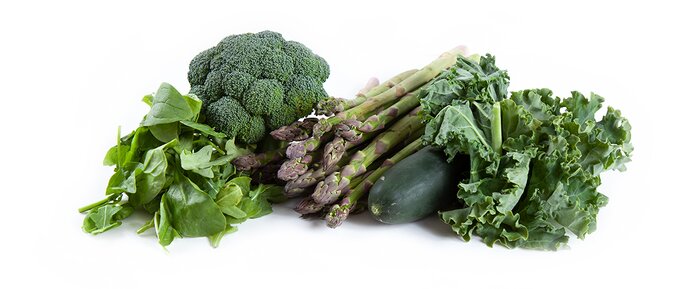The new go-to ingredient in pre-workouts and performance supplements is something you’ve been eating—or maybe just pushing to the side of your plate and hoping your mom didn’t notice—for a long time. Nitrates, such as are found in beets, spinach, and other green and red vegetables, have been associated with cardiovascular and endurance benefits for years, but have been showing promise recently to help lifters, as well.
Not looking to shovel in a plateful of beets and greens before leg day? That’s OK. Here’s why you should consider adding nitrates to your pre-workout supplement lineup—as well as to your daily routine.
What Are Nitrates?
Nitrates are compounds that occur naturally in the body, but which are also found in beet root and green leafy vegetables such as spinach, kale, and arugula. These substances act as a precursor to the compound nitric oxide, which serves a wide array of roles and effects on the human body—and could favorably impact numerous types of exercise.
Most notably, nitric oxide plays a critical role in promoting vasodilation and blood flow, which could increase oxygen and nutrient delivery to the working muscles.

Nitrates for Greater Endurance
Over the past several years, a large body of research has investigated the effects of dietary nitrates—usually in the form of beets—on cardiorespiratory endurance. Collectively, the evidence suggests that nitrates can improve aerobic performance such as distance events or time-to-exhaustion tests by enhancing exercise efficiency.
Despite some mixed evidence, nitrates appear to reduce fatigue and enhance exercise performance during activities like running or cycling. And unlike some supplements that seem to work best in untrained people, these positive effects seem to be more pronounced in recreational athletes.
Nitrates for More Reps in Weight Training
One reason nitrates are thought to benefit high-intensity exercise is that nitric oxide synthesis does not require the presence of oxygen. This means it works well in the acidic environments created by fast-paced, low-rest training. Additionally, nitric oxide has been shown to preferentially enhance blood flow to the stronger and powerful muscle fiber types (i.e., fast twitch muscle fibers). This has been shown to enhance both muscular contraction speed and power output during high-velocity movements.
How about nitrates for weights? Bodybuilders swear by nitrates to increase the pump during weight training because of their blood-flow-boosting effects. But recent research indicates they may be doing more than that.
For example, a study from 2020 found that beet root juice supplementation 2 hours prior to a bench press significantly increased the power of explosive repetitions. It also increased the repetitions lifters could manage in a bodybuilding-style “chest day” bench workout: 3 sets to failure using 70 percent of one-repetition maximum with 2-minute rest periods. This preliminary evidence is encouraging, but more research on this topic is needed.
How to Use Nitrates to Boost Performance
The best approach starts by eating a diet high in healthy, nitrate-rich vegetables. Aside from that, the research indicates that the best dosage of pre-workout nitrates is around 400-800 milligrams or 6-12 mmol, taken 2-3 hours before exercise.
The only problem with that dosage is you almost definitely don’t take your pre-workout 2-3 hours before training. Most experts recommend taking it 30-45 minutes before your workout.

This is why it’s good idea to take nitrates daily in addition to any you get from a pre-workout blend. This is the same approach that has been shown to be effective for other workout powerhouse supplements like creatine monohydrate and beta-alanine. And like those ingredients, recent research backs up the idea that daily nitrate supplementation can increase intramuscular storage over time.
What about guzzling some beet juice? While this is a good way to get nitrates, the exact nitrate content is difficult to standardize in both beet juice products and powdered supplements. Put another way, 500 milligrams of beet root extract is not the same as 500 milligrams of nitrates.
Eat right, then supplement strategically and enjoy a better workout!
Looking for a natural edge to pack on muscle? Nitrates are the ingredient you need to know about.
